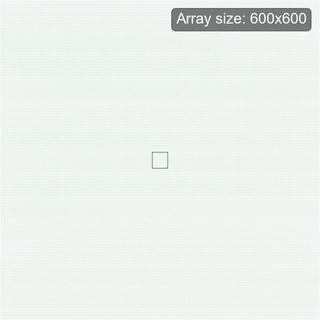
Atoms are trapped in an array of optical tweezers that are generated with a highly precise optical metasurface

Inducing and controlling dipole-dipole interactions between molecules allowed driving a BEC of dipolar molecules into various droplet phases.


Atoms are trapped in an array of optical tweezers that are generated with a highly precise optical metasurface
We have several exciting openings for graduate students and postdoctoral research scientists in our group. Please reach out directly to Professor Sebastian Will - we look forward to receiving your application!
The Will Lab investigates quantum systems of ultracold atoms and molecules. We cool atoms and molecules to ultracold temperatures close to above absolute zero - reaching the coldest temperatures allowed by nature. At these temperatures, the behavior of particles is determined by the laws of quantum mechanics. Using the precision tools of atomic physics, we have full control over the quantum state of each particle and the interactions between them.
We work towards single atom and single molecule and create novel many-body quantum systems, and perform quantum simulations of strongly interacting matter. Our research program focusses on fundamental questions in many-body quantum physics, quantum simulation, and quantum optics, and contributes to the development of modern quantum technologies. For more details go to Research.
Recent News

January 14, 2026
Metasurface atomic tweezer arrays out in Nature!
In collaboration with the Yu Lab at Columbia, we demonstrate single atom trapping in metasurface optical tweezer arrays and show that metasurfaces - thanks to their small pixel size, high pixel number, and high power handling capability - open a path towards atomic tweezer arrays beyond 100,000 traps.
Link to Manuscript
Link to Video of the 360,000 tweezer array
Link to Columbia Press Release
Link to EurekAlert
Link to MSN
Link to BGR
Link to Physics World

July 21, 2025
Droplet formation in ultracold dipolar molecules!
Our latest preprint is out - we report the first observation of self-bound droplets and droplet arrays in a degenerate gas of dipolar ground state molecules. We demonstrate versatile control of dipolar interactions and observe a phase diagram of droplet formation. The droplets reach densities up to 100 times higher than the BEC, entering the strongly interacting regime, and suggesting the possibility of new quantum-liquid and crystalline phases. Thank you to the entire NaCs team - past and present members - on the monumental work that enabled these observations! https://arxiv.org/abs/2507.15208

August 1, 2025
Dr. Ian Stevenson now Prof.
Dr. Ian Stevenson, who has been a postdoctoral in our NaCs lab, has accepted a faculty position at University of Virginia. All the best wishes for the start of the new lab and a big thank you to Ian for all the wonderful work in our NaCs lab. It has been an amazing journey!

June 15, 2025
Dr. Niccolò Bigagli finalist for the APS Deborah Jin Thesis Award!
Our own Niccolò Bigagli is one of the four finalists for the APS Deborah Jin Thesis Award! This week Niccolò will present his groundbreaking thesis work - comprising the full journey from an empty lab to the first Bose-Einstein condensate of dipolar molecules - at the APS DAMOP conference in Portland, OR. Please join the session if you can! We are very excited for you, Niccolò, and all fingers crossed! Link to the DAMOP Session
Funding




Videos
Our lab is featured in recent videos:



